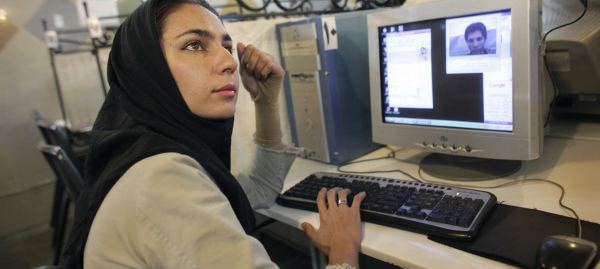
Stop Fundamentalism – An official of Iran’s Judiciary announced new limitations on using cyber space and content publishing on the internet ahead of the upcoming parliamentary elections.
“Publishing criminal content is a crime,” said Abdol-Samad Khoramabadi to news reporters Sunday, referring to using the internet to expose the undemocratic nature of elections in Iran where only certain people approved by authorities get to participate.
Just last week a number of top officials speaking at Friday sermons held across the country said clearly that only those completely dedicated to the Supreme Leader, Ali Khamenei, should be allowed to enter Majlis (Parliament).
Elections in Iran are known to be sham among many Iranians and candidates have to go through many types of checking mechanisms before they are allowed to run.
“In Iran you cannot expect to have free elections where all the candidates are filtered and only those closely affiliated to the Supreme Leader and who endorse the principle of the Velayat-e Faghih (Absolute Rule of Clirics) will be allowed to become candidates,” says a young Iranian dissident who just left Iran a few months ago.
During past few years internet has literally been a thorn in the side of the Iranian regime as it renders the government incapable of exercising its complete control over the media and what is published.
“All websites are responsible to refrain from publishing ‘criminal content’ which is categorized in the list published,” says Khoramabadi referring to a list of 25 restrictions he distributed among reporters. He added, “In additions to prosecution of perpetrators, their websites will be shutdown as a punitive measure.”
Reporters without Boarders, an international rights group dedicated to defending journalists around the world, has described Iran to a “prinson for Journalists.” Iran is known to have one of the highest number of journalists and bloggers in prison.
The foremost criterion mentioned in the list that describes ‘criminal content’ is to “publish any type of content to compel people to boycott the elections in a bid to lower the overall voter participation.”
Iran uses advance filtering systems to block content and information from exiled dissidents and its opposition to get into the hands of the country’s youth population.
Internet and online social media has been named to be the most effective factor aiding the 2009 post-election street protests that nearly toppled clerical regime’s 33 year rule.







